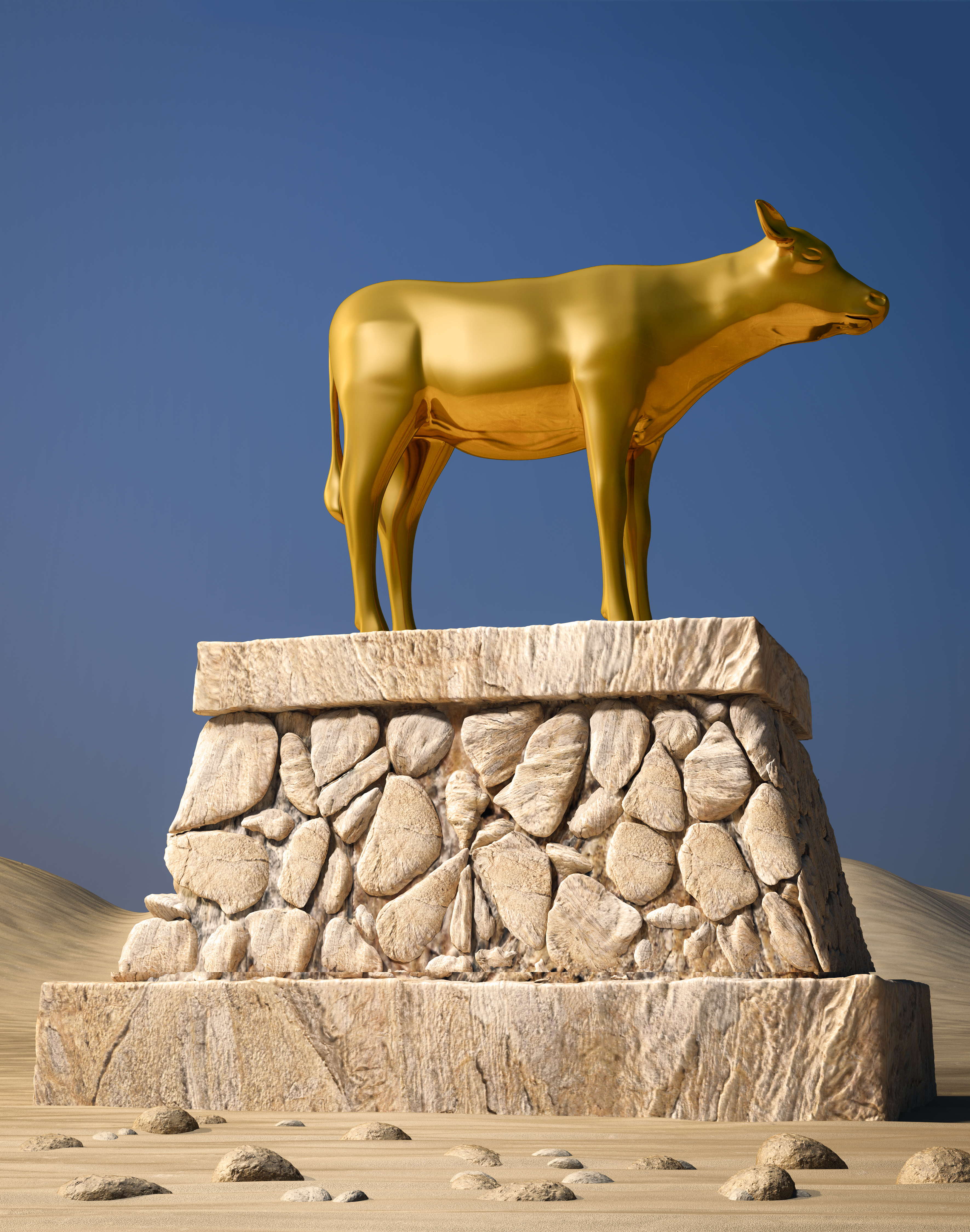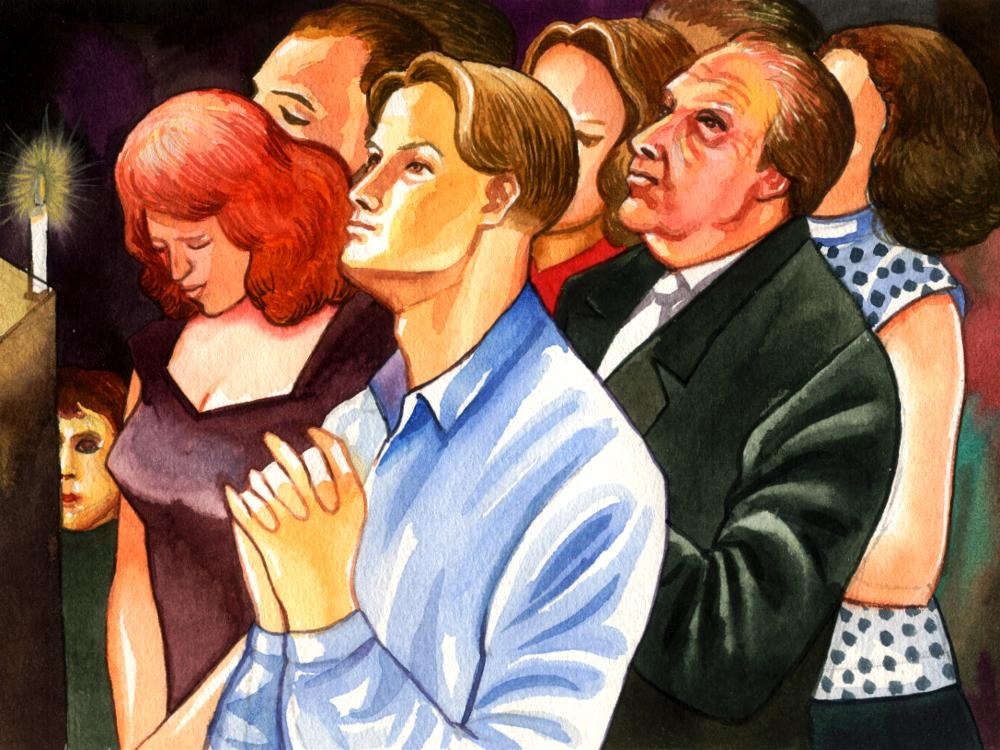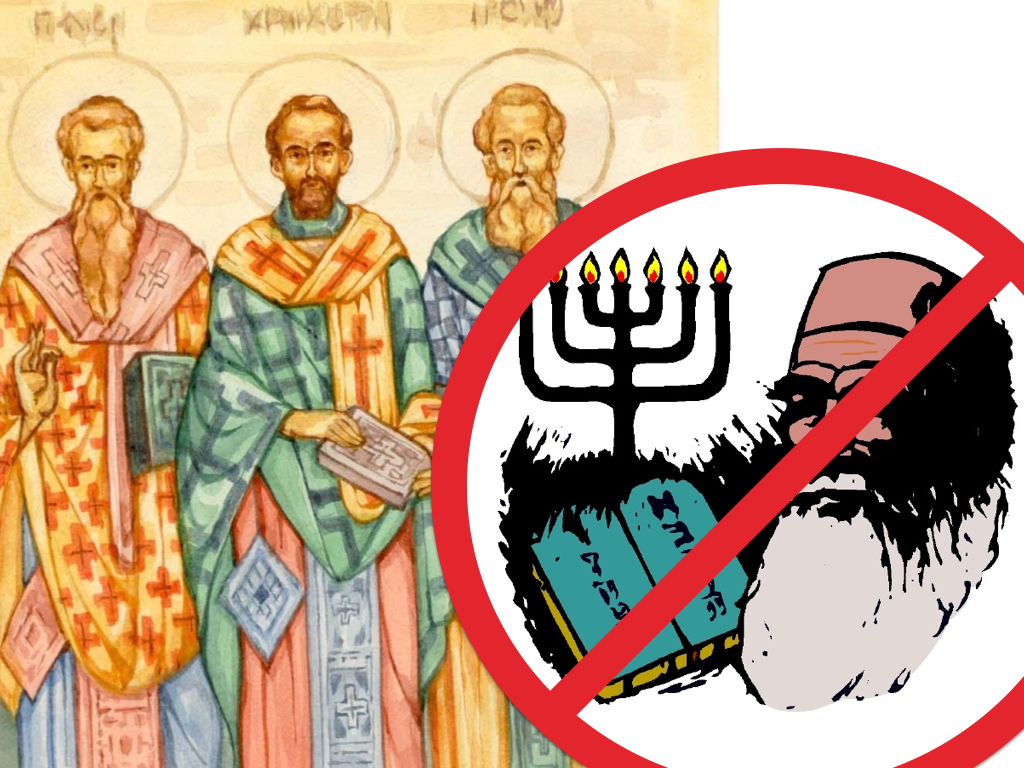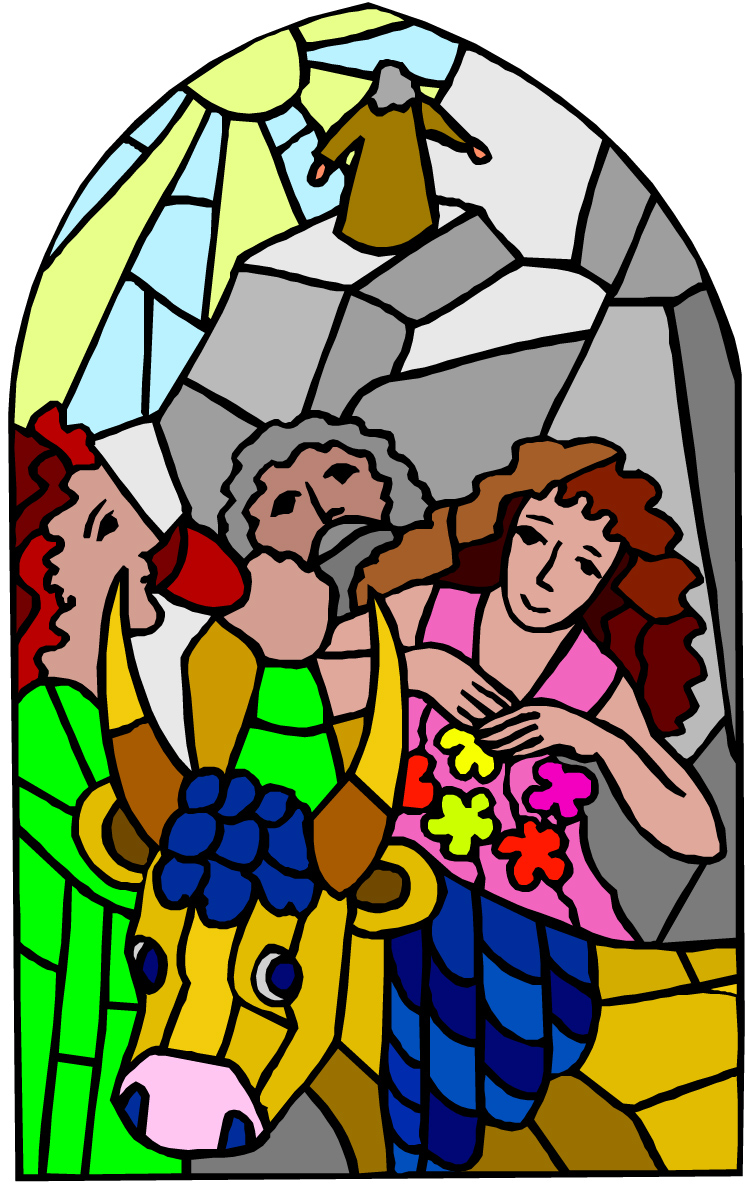 Exodus 32:1, Moses delayed coming. Moses is a prophetic picture of Yeshua. Moses’ descending from Mount Sinai is a prophetic picture of Yeshua descending from heaven to the earth the first and second time. When the people presumed that Moses delayed his coming, they fell to the temptation to syncretize with the heathen religious system around them by yielding to their baser nature giving in to the lusts of their flesh as expressed in golden calf worship. Heathen, man-made religious systems have lower moral and spiritual standards than those of YHVH. In many respects, the mainstream church has done the same thing as the ancient Israelites by acting as if Yeshua has delayed his second coming, and by conforming to some of the world’s standards and customs. This is a form of golden calf worship, which is a mixture of Torah-truth and pagan practices. Yeshua warned his disciples against this proclivity of humans to grow impatient and spiritually cold wile waiting for his return (Matt 24:48).
Exodus 32:1, Moses delayed coming. Moses is a prophetic picture of Yeshua. Moses’ descending from Mount Sinai is a prophetic picture of Yeshua descending from heaven to the earth the first and second time. When the people presumed that Moses delayed his coming, they fell to the temptation to syncretize with the heathen religious system around them by yielding to their baser nature giving in to the lusts of their flesh as expressed in golden calf worship. Heathen, man-made religious systems have lower moral and spiritual standards than those of YHVH. In many respects, the mainstream church has done the same thing as the ancient Israelites by acting as if Yeshua has delayed his second coming, and by conforming to some of the world’s standards and customs. This is a form of golden calf worship, which is a mixture of Torah-truth and pagan practices. Yeshua warned his disciples against this proclivity of humans to grow impatient and spiritually cold wile waiting for his return (Matt 24:48).
Exodus 32:2, Break off the golden earrings. The Christian people have generously given the mainstream church much gold and other wealth over the past 1900 years. In the mean time, with that wealth, the church system has constructed many huge religious monuments. These are monuments, in part, to the gods of materialism, and is a form of golden calf worship. Neither Yeshua nor his disciples needed vast sums of money, resources or monuments to spread the gospel message. What they lacked in material resources they made up with passion for the gospel message and with the anointing of YHVH to proclaim that gospel with miraculous power. What the mainstream church largely lacks in passion and the anointing to spread the gospel, they now, sadly, substituted with wealth and religious monuments.
The Golden Calf Incident: A Prophetic Picture of the Church
On Shavuot (the Feast of Weeks or Pentecost), at Mount Sinai, YHVH entered into a marriage covenant with the children of Israel, but they were not ready to live up to the terms of that covenant. Those terms, simply stated, involved the Israelites being faithful and obedient only to YHVH, Israel’s Elohim (God) and spiritual husband, and to follow his instruction in righteousness, the Torah. This Israel quickly demonstrated they were not Continue reading






